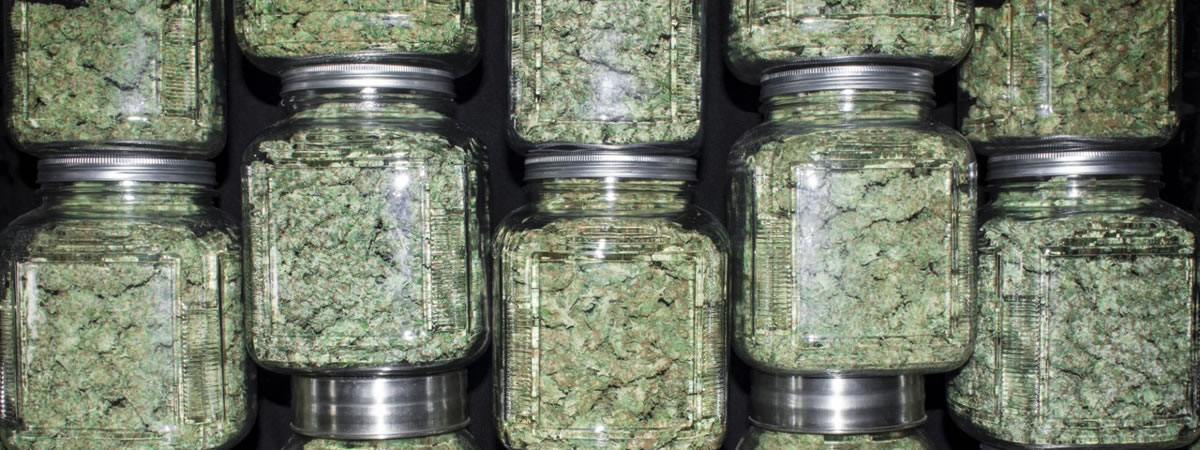Recreational Marijuana in Arizona: Everything You Need To Know.

As part of the November 2020 election, Arizona voters passed Proposition 207, decriminalizing marijuana for adults 21 and older. Voters legalized both the recreational use and possession of marijuana. Legalization comes to Arizona just four years after a similar referendum's failure and ten years after Arizona legalized medical marijuana.
When Will Recreational Marijuana Be Allowed in Arizona?
Proposition 207 was passed overwhelmingly by Arizonans, with 60% of voters approving the measure. Under state law, Arizona will officially confirm the proposition's success on November 30, 2020. As soon as the approval is formally certified, possession of up to an ounce of marijuana will be legal, as will the cultivation of personal marijuana plants. All changes under Proposition 207 apply to adults over 21 years of age.
Arizonans hoping to purchase marijuana legally, however, will need to wait. The state government will regulate sellers of legal marijuana products under Proposition 207. Dispensaries hoping to sell marijuana must apply to the state Department of Health Services for a sales license. Current dispensaries selling medical marijuana will have first preference for these licenses.
The Arizona Department of Health Services can start receiving license applications from dispensaries or other vendors on January 19, 2021. Once an application is received, the state will have 60 days to respond. While potential sellers hope the legal sale of marijuana in Arizona will begin in March 2021, bureaucratic delays may push the date closer to April.
Personal Marijuana Laws After Arizona Proposition 207
Once the election results for Proposition 207 are certified on November 30, adults age 21 and older will be legally allowed to possess and use marijuana in the state of Arizona. Currently, anyone in Arizona found in possession of any testable amount of marijuana would face felony charges. Once Proposition 207 is certified, possession of up to an ounce of "flower" and up to five grams of concentrates will be legal. Additionally, Proposition 207 legalized personal marijuana growth, with each adult allowed up to six plants to be grown per habitation, up to 12 plants if the residence has more than one adult.
Popularity of Legalizing Recreational Marijuana
Arizona voters, who narrowly defeated a similar measure in 2016, approved legal recreational marijuana in 2020, with 60% of voters approving the measure.
Beyond Arizona, voters in another four states passed measures providing greater legal access to marijuana during the November 2020 election. Montana, Mississippi, New Jersey, and South Dakota all passed referendums, with all but Mississippi legalizing the recreational possession or use of marijuana. Mississippi will, for the first time, allow medical marijuana.
The results in other states, including Arizona, show that recreational marijuana's popularity transcends political, economic, and geographic divides in the United States. Voters in red states and blues states, northern and southern states, rural and urban states all agreeing upon a policy in 2020 is a rarity that is likely to be increasingly capitalized upon by politicians. The governor of Virginia, for example, has recently cited marijuana legalization as a critical goal for himself and the state legislature in 2021. The popularity of Proposition 207 in Arizona may provide an example and a spur for other marijuana reform laws across the United States.
Marijuana Law in Arizona Before Proposition 207
Before the passage of Proposition 207, possessing or using (non-medical) marijuana was a felony crime in Arizona. State code in Arizona defines marijuana as "all parts of any plant of the genus cannabis, from which the resin has not been extracted, whether growing or not and the seeds of such plant." (Arizona Revised Statutes § 13-3401.36(19)).
It was illegal to knowingly possess or use cannabis under Arizona Revised Statutes § 13-405. Possession or use laws meant that you could be arrested if the police caught you smoking or if they found marijuana on your person during a legal search. You could also be charged with felony possession or use based on circumstantial evidence, including if the police found marijuana near you, in your car, or in your home.
The amount of marijuana involved when found on or near you determined the class of felony with which you could be charged. Whether the marijuana was intended for sale also factored into the offense level.
The following rules were applied for personal use marijuana charges before the passage of Proposition 207:
- A class 6 felony if the amount of marijuana less than two pounds.
- A class 5 felony if it involved between two and four pounds of marijuana.
- A class 4 felony if the amount of marijuana exceeded 4 pounds.
Even first-time offenders could face jail time for a felony conviction for recreational marijuana use or possession.
Sentences for first-time felony convictions in Arizona follow these guidelines:
- Sentences for first-time class 6 felony convictions range from 0.33 years to 1.5 years.
- Sentences for first-time class 5 felony convictions range from 0.5 years to 2.5 years.
- Sentences for first-time class 4 felony convictions range from 1 year to 3.75 years.
Arizona Medical Marijuana after Proposition 207
The passage of Proposition 207, bringing legal recreational marijuana use to Arizona, does not affect the Arizona Medical Marijuana Act. Current medical marijuana users in Arizona may retain certain advantages over purely recreational users by keeping a medical marijuana card.
Under Proposition 207, recreational marijuana will face an excise tax above and beyond other sales taxes levied by the state and localities. Recreational marijuana will be subject to a 16% excise tax in Arizona. If you hold a valid medical marijuana card, the excise tax will not apply to your purchases at valid medical marijuana dispensaries.
Medical marijuana purchases are also allowed to be written-off state taxes under Arizona law. The state earmarked revenue from the excise tax on recreational marijuana for community colleges, public safety, and public health initiatives.
Previous Marijuana Charges after Proposition 207
Proposition 207 applies retroactively in Arizona, meaning it impacts previous arrests and convictions for marijuana possession and use. Both those already convicted of marijuana use or possession offenses and whose charges are currently pending are affected by Proposition 207.
Those facing pending marijuana criminal charges in Arizona involving less than five grams of concentrates, 2.5 ounces of flower, or marijuana paraphernalia will immediately be able to file a motion to dismiss the case once Proposition 207 is certified.
Additionally, those who have had past arrests, charges, convictions, or sentences for possessing 2.5 ounces or less of marijuana flower, possessing less than 12.5 grams of concentrate, having six or fewer marijuana plants, or possessing marijuana paraphernalia can petition for their criminal record to be expunged beginning on July 12, 2021. Proposition 207 provides the Arizona Supreme Court the ability to create further rules addressing the prior convictions for recreational marijuana use or possession.
If you have a previous conviction or a pending recreational marijuana charge, you should contact an experienced criminal defense attorney to learn what relief may be available under Proposition 207. A defense attorney will help you determine if your case is eligible for dismissal or expungement under the new law.


















